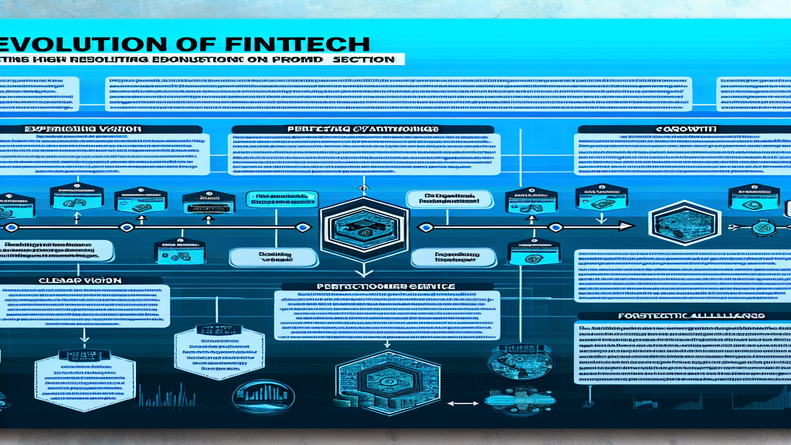Imagine living in a world where financial technology is much more than a mere tool; it is a consistent source of income. The world is already witnessing such a change, with fintech enterprises controlling the realms of banking, and offering innovative solutions to complex problems. So, the question here is, can these fintech businesses serve as a persistent revenue source? Can an individual develop a fintech business from scratch that generates significant income every month? This blog post sheds light on these questions and offers an inspiring roadmap for aspiring fintech entrepreneurs.
The Initial Struggles: Surviving the Fierce Ocean of Competition
Starting a fintech business is akin to setting sail on treacherous waters. The early phases are fraught with challenges—securing capital, navigating regulations, and gaining customer trust. The fintech arena is crowded, with each competitor vying for a piece of the financial pie. Despite these challenges, the gritty entrepreneur views each setback as a stepping stone towards a deeper understanding of the market’s needs and demands. It’s this relentless pursuit that carves the foundation for success.
The Turning Point: Seizing the Moment of Transformation
A decisive moment arrives when persistence meets opportunity. For fintech entrepreneurs, this could be manifested in a groundbreaking product feature or a strategic partnership. Citi’s investment in payment solutions, liquidity management, and trade finance represents such a pivotal turn. The courage to innovate, coupled with an understanding of the market dynamics, turns the tides for a fintech startup, setting it on a path towards profitability.
Scaling Up: Charting the Course for Expansion
 Evolution from a nascent startup to a growth-stage company is a testament to an entrepreneur’s foresight and strategic acumen. Expanding service offerings, perfecting customer service, and fostering strategic alliances are crucial. Citi’s interest in nurturing partnerships with fintechs that demonstrate a clear vision and robust business model exemplifies this growth phase. With each calculated step, a fintech enterprise grows sturdier, ready to take on the global market.
Evolution from a nascent startup to a growth-stage company is a testament to an entrepreneur’s foresight and strategic acumen. Expanding service offerings, perfecting customer service, and fostering strategic alliances are crucial. Citi’s interest in nurturing partnerships with fintechs that demonstrate a clear vision and robust business model exemplifies this growth phase. With each calculated step, a fintech enterprise grows sturdier, ready to take on the global market.
Lessons Learned: The Treasure Map of Fintech Wisdom
The journey thus far reveals invaluable insights: embracing innovation, understanding customer pain points, and maintaining agility. Businesses struggling to adapt to market changes or unable to capitalize on partnerships falter. Citi’s focus on enduring business fundamentals as investment criteria highlights the importance of these core principles. These lessons chart the path for emerging financial technologies to carve their own success stories.
The Future: Envisioning a World Transformed by Fintech
The fintech landscape is ever-evolving, and the trajectory points to a more integrated, efficient financial ecosystem. Predictive analytics, AI, and blockchain technology are just a few hallmarks of this future. Citi’s strategic foresight in investing in personalized payment and security solutions indicates the potential for fintech firms to reshape entire industries. For the savvy entrepreneur, the future is a canvas of possibilities.
Conclusion: The Transformative Power of Fintech and the Entrepreneur’s Journey
Summarizing the path of fintech entrepreneurship, it becomes clear that resilience, technology, and vision form the bedrock of a scalable and sustainable business. It is the blend of these elements that propels a fintech initiative beyond mere survival towards a realm of growth and significant income generation. The transformative power of financial technology is palpable, with corporations like Citi leading the charge, ready to bring forth a new age of financial solutions.Are you ready to join the movement and redefine the scope of what’s possible within your organization? Connect with me on LinkedIn to explore how you can harness the power of financial technology and embark on a journey of unparalleled productivity.
